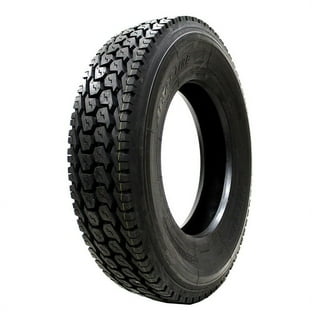Conserve Big with Mopar Tire Service Specials in Morris: Limited Time Uses
Tire Solution: Understanding Tire Stress Surveillance Systems
Recognizing Tire Stress Monitoring Solutions (TPMS) is a critical element of keeping ideal automobile efficiency and safety on the road. With innovations in auto modern technology, TPMS has become a common function in modern-day lorries, supplying real-time information on tire pressure degrees.

Relevance of TPMS
The significance of Tire Pressure Monitoring Equipments (TPMS) hinges on their ability to boost car safety and performance through real-time surveillance of tire stress degrees. Preserving the appropriate tire pressure is important for making sure optimum handling, braking, and overall safety of an automobile. TPMS supplies vehicle drivers with immediate feedback on any overinflated or underinflated tires, permitting for prompt modifications to be made.
Components of TPMS
Sensing units are commonly located in the tire shutoff stem or connected to the wheel setting up, where they gauge tire pressure and transmit information to the control module. Some advanced TPMS versions also display the real tire stress analyses for each tire, supplying motorists with real-time information to make sure ideal tire performance and safety. By checking tire pressure continually, TPMS assists prevent crashes, minimizes tire wear, and improves gas effectiveness, making it an important component for car security and performance. discount tires morris il.
Sorts Of TPMS

On the various other hand, indirect TPMS depends on the lorry's wheel speed sensors to keep track of tire pressure. This system detects underinflation by comparing the rotational speeds of the wheels. Indirect TPMS is less expensive than direct TPMS, as it uses existing sensing units within the lorry.
While direct TPMS offers much more precise readings, indirect TPMS is simpler in design and normally calls for much less upkeep. Both systems have their benefits and constraints, and the option between them typically depends upon variables such as cost, vehicle make, and personal preference. Comprehending the differences in between these two types of TPMS can help vehicle proprietors make educated decisions pertaining to tire upkeep and security.
TPMS Maintenance Tips
Effective upkeep of TPMS is crucial for ensuring ideal efficiency and security of your vehicle. On a regular basis evaluating the TPMS sensing units for any kind of damage or corrosion is crucial. Make certain that the sensing units are tidy and free from particles that can hinder their functioning. In addition, it is suggested to inspect the sensor batteries occasionally and change them as needed to assure precise analyses. Conduct regular look at the tire pressure degrees and compare them with the TPMS analyses to ensure they correspond. If there are any kind of disparities, alter the system following the maker's guidelines. Throughout tire rotation or substitute, make certain that the TPMS components are managed thoroughly to protect against any possible damage. If the TPMS cautioning light brightens on the control panel, address the concern immediately by examining the tire pressures and the general system for any kind of faults. By adhering to these upkeep suggestions, you can extend the life-span of your TPMS and boost the safety of your driving experience.
Advantages of Correct Tire Stress
Preserving proper tire stress, as highlighted in TPMS Upkeep Tips, is vital for enjoying the numerous benefits linked with optimal tire pressure degrees. Additionally, correct tire pressure makes sure even tire wear, prolonging the lifespan of the tires and promoting more secure driving conditions. In verdict, the benefits Related Site of appropriate anonymous tire stress go past just tire durability; they encompass enhanced gas performance, enhanced security, far better car performance, and total driving comfort.
Conclusion
Finally, understanding tire pressure surveillance systems (TPMS) is essential for preserving ideal tire stress and ensuring vehicle safety and security. By acknowledging the value of TPMS, recognizing with its parts, recognizing the various kinds available, sticking to proper upkeep tips, and realizing the advantages of maintaining appropriate tire stress, motorists can boost their driving experience and prolong the life expectancy of their tires. Appropriate tire pressure is essential to risk-free and effective car operation.
